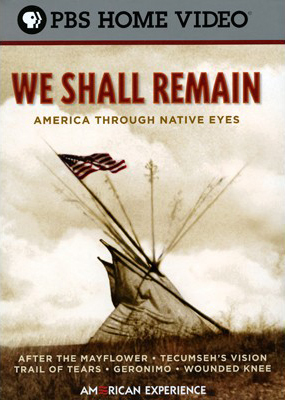1 Video 5 Photos Documentary Biography History The Cherokee would call it Nu-No-Du-Na Tlo-Hi-Lu, “The Trail Where They Cried.” On May 26, 1838, federal troops forced thousands of Cherokee from their homes in the Southeastern United States, driving them toward Indian Territory in Eastern Oklahoma. More than 4,000 died of disea… Read all Director
March 26, 1839: End of The Trail of Tears – Zinn Education Project
The Trail of Tears was the deadly route Native Americans were forced to follow when they were pushed off their ancestral lands and into Oklahoma by the Indian Removal Act of 1830.

Source Image: capstonepub.com
Download Image
They were surrounded by the units and he wanted to defend the “cherokee way of life”. Who among the Cherokee owned slaves? Major Ridge, John Ross, John Ridge. 87% of Cherokes owned slaved (mixed blood elite). How did the lives of traditional Cherokees differ from that of the Ridge family?

Source Image: facebook.com
Download Image
58 Social Studies – Trail of Tears ideas | trail of tears, social studies, native american heritage The Busing Battleground The Busing Battleground viscerally captures the class tensions and racial violence that ensued when Black and white students in Boston were bused for the first time between

Source Image: pinterest.com
Download Image
We Shall Remain Trail Of Tears Summary
The Busing Battleground The Busing Battleground viscerally captures the class tensions and racial violence that ensued when Black and white students in Boston were bused for the first time between Episode three of five in the We Shall Remain series. The Cherokee would call it Nu-No-Du-Na-Tlo-Hi-Lu, “The Trail Where They Cried.”. On May 26, 1838, federal troops forced thousands of Cherokee from their homes in the Southeastern United States, driving them toward Indian Territory in Eastern Oklahoma. More than 4,000 died of disease and
30 End of the trail ideas | trail, trail of tears, cherokee history
Arts & Culture AMERICAN EXPERIENCE: We Shall Remain: Trail Of Tears Published October 29, 2010 at 12:35 PM PDT Courtesy of ©Billy Weeks Still photo from a reenactment of Cherokee forced from Trail of tears | Trail of tears, Tears art, Native american nations

Source Image: pinterest.com
Download Image
American Experience: We Shall Remain DVD | Shop.PBS.org Arts & Culture AMERICAN EXPERIENCE: We Shall Remain: Trail Of Tears Published October 29, 2010 at 12:35 PM PDT Courtesy of ©Billy Weeks Still photo from a reenactment of Cherokee forced from

Source Image: shop.pbs.org
Download Image
March 26, 1839: End of The Trail of Tears – Zinn Education Project 1 Video 5 Photos Documentary Biography History The Cherokee would call it Nu-No-Du-Na Tlo-Hi-Lu, “The Trail Where They Cried.” On May 26, 1838, federal troops forced thousands of Cherokee from their homes in the Southeastern United States, driving them toward Indian Territory in Eastern Oklahoma. More than 4,000 died of disea… Read all Director

Source Image: zinnedproject.org
Download Image
58 Social Studies – Trail of Tears ideas | trail of tears, social studies, native american heritage They were surrounded by the units and he wanted to defend the “cherokee way of life”. Who among the Cherokee owned slaves? Major Ridge, John Ross, John Ridge. 87% of Cherokes owned slaved (mixed blood elite). How did the lives of traditional Cherokees differ from that of the Ridge family?

Source Image: pinterest.com
Download Image
We Shall Remain: America Through Native Eyes – Zinn Education Project This belongs to PBS, I do not own any part of it The Cherokee would call it Nu-No-Du-Na-Tlo-Hi-Lu, “The Trail Where They Cried.” On May 26, 1838, federal tro

Source Image: zinnedproject.org
Download Image
30 End of the trail ideas | trail, trail of tears, cherokee history The Busing Battleground The Busing Battleground viscerally captures the class tensions and racial violence that ensued when Black and white students in Boston were bused for the first time between

Source Image: pinterest.com
Download Image
160 Best Trail of Tears ideas | trail of tears, native american history, native american indians Episode three of five in the We Shall Remain series. The Cherokee would call it Nu-No-Du-Na-Tlo-Hi-Lu, “The Trail Where They Cried.”. On May 26, 1838, federal troops forced thousands of Cherokee from their homes in the Southeastern United States, driving them toward Indian Territory in Eastern Oklahoma. More than 4,000 died of disease and

Source Image: pinterest.com
Download Image
American Experience: We Shall Remain DVD | Shop.PBS.org
160 Best Trail of Tears ideas | trail of tears, native american history, native american indians The Trail of Tears was the deadly route Native Americans were forced to follow when they were pushed off their ancestral lands and into Oklahoma by the Indian Removal Act of 1830.
58 Social Studies – Trail of Tears ideas | trail of tears, social studies, native american heritage 30 End of the trail ideas | trail, trail of tears, cherokee history This belongs to PBS, I do not own any part of it The Cherokee would call it Nu-No-Du-Na-Tlo-Hi-Lu, “The Trail Where They Cried.” On May 26, 1838, federal tro